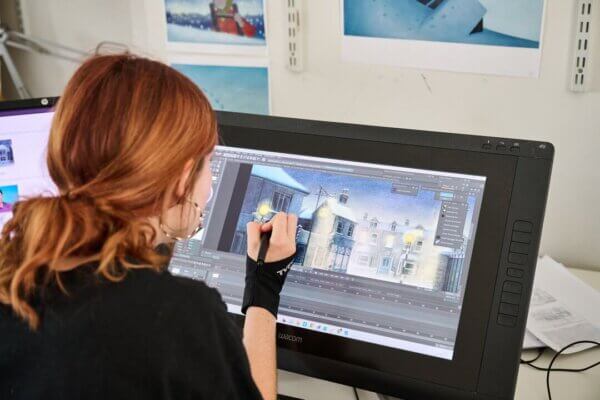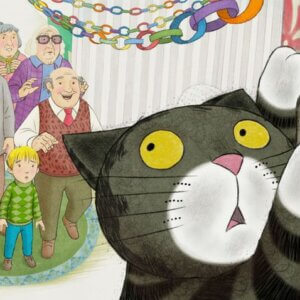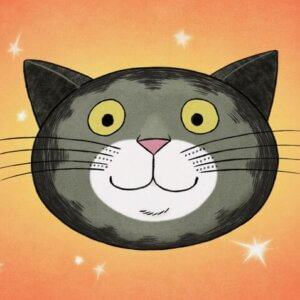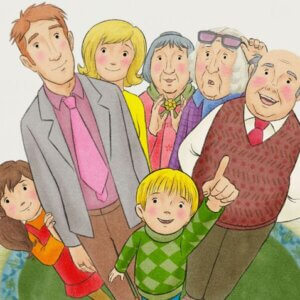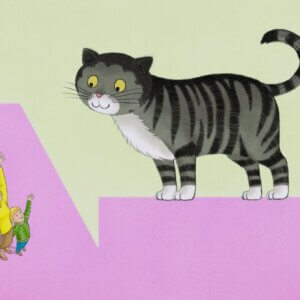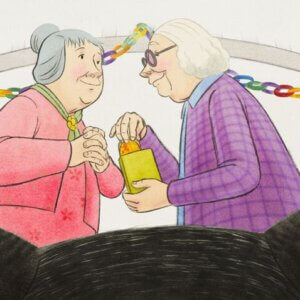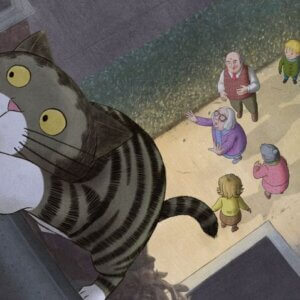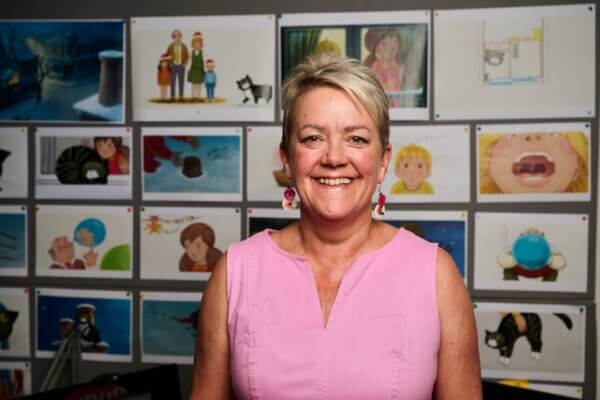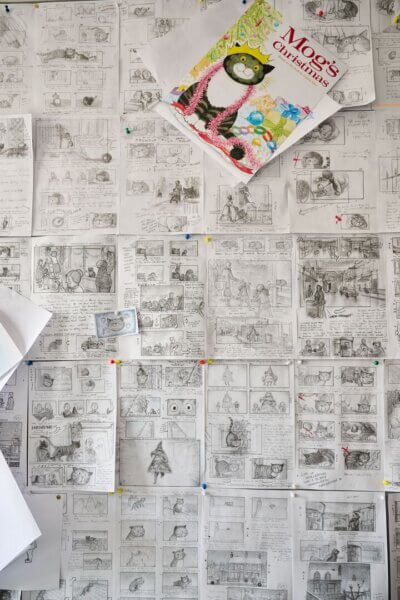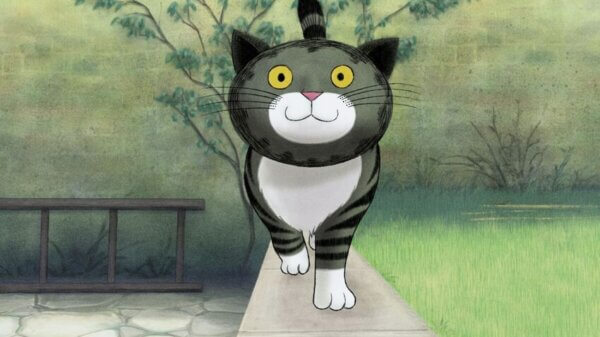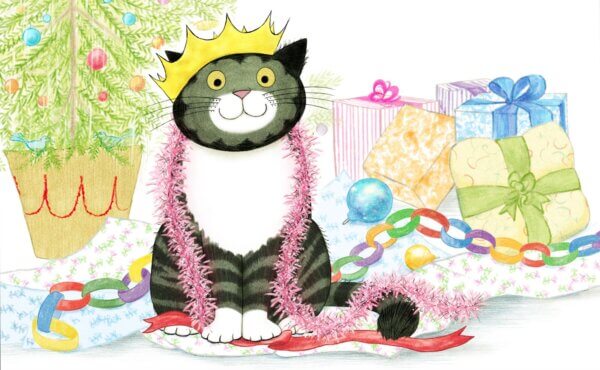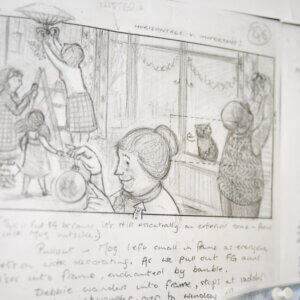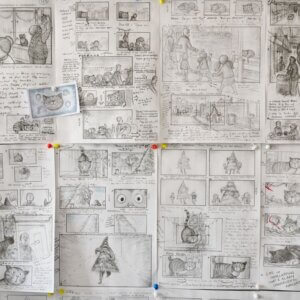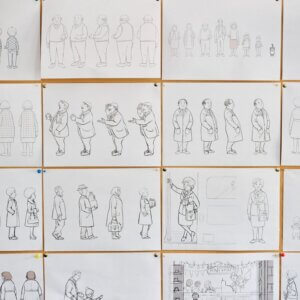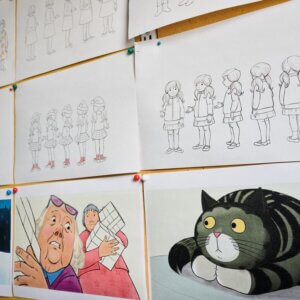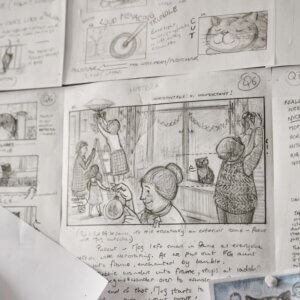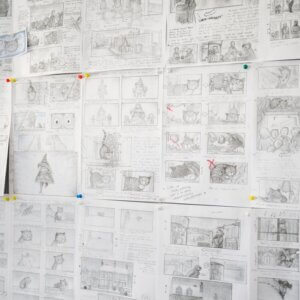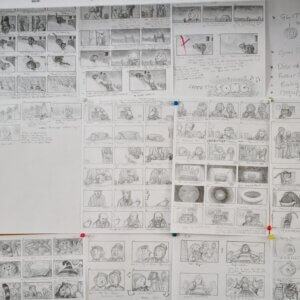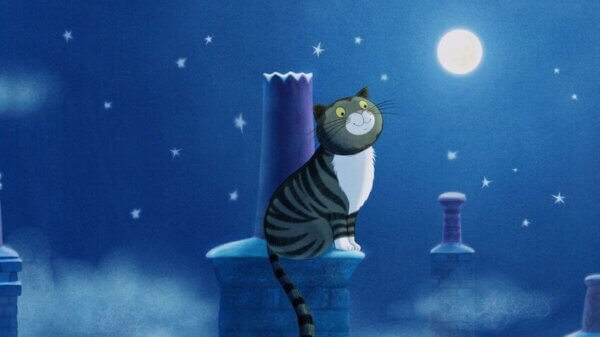Across the Kerr-niverse! Lupus Films open up the world of Judith Kerr for ‘Mog’s Christmas’
What makes a Christmas special, special?
The UK sets the pace internationally for character filled half hour shows that return to our screens yearly and fill us full of glad tidings. Our rainy, miserable island has a proud history of delivering these seasonal showstoppers and spreading the cheer. The obvious place to start would be TVC’s The Snowman, but who could forget Nick Parks’ Wallace and Gromit adventures? Robin Robin maybe? You could go obscure with the lesser recalled Flatworld by Daniel Greaves or the Barry Purves directed Hamilton’s Mattress or you could look at recent crowd pleasers such as The Gruffallo or Stick Man from Magic Light Pictures. The list goes on.
Whatever gets your tinsel tingling, a festive film is the perfect accompaniment to the season and top of the list of UK animation houses providing animated adventures at Christmas is Lupus Films. With a christmassy opus that begins with The Snowman and the Snowdog, Lupus have gifted viewers treats over the years in the shape of We’re Going on a Bear Hunt and recently The Tiger Who Came to Tea. The latter of these is based on the work of noted illustrator and writer Judith Kerr, with whom the studio worked to produce the adaptation. In what would have been her centenary year Lupus have returned to the authors back catalogue to share the adventures of one of her most beloved creations Mog.
Helming the short is Robin Shaw, a Lupus Films veteran who first got his foot in the door art directing the Snowman sequel with thanks to his own cheeky adaptation for Irn Bru. Shaw has been a regular at the studio since the Snowdog directing both Bear Hunt (with Joanna Harrison) and Tiger. Skwigly settled into Lupus Films north London offices to see a preview of the film, sitting down with the director and company co-founder and producer Ruth Fielding to discuss Mog’s Christmas.
The latest offering has grasped the baton the studios previous films have held by translating the delicate and much loved pencil illustrated style and brought it to life. When we described the films as having a feature quality “As it should be!” came the direct, though expected response from Shaw, a director who oversaw millions of “pencil miles” as animators worked tirelessly to add the stripes and patterns to The Tiger Who Came to Tea and now Mog’s Christmas which is no exception to this rule as Kerr’s well cared for kitty has been recreated line by painstaking line.
There have been some innovations, though not to the detriment of the crayon-hewn vision. Using the software available art director Martin Oliver created a brush that would generate tinsel, paper chain and other decorations based on original drawings in order to retain the original hand of the artist. When Skwigly asked Shaw about rigging he baulked at the idea, considering it a swear word – though the director later admitted to some rigging of the branches of the Christmas tree, admitting his initial reaction was assuming we meant that the main characters were rigged. They’re clearly not and retain a rarely seen hand drawn charm about them that is quite timeless. So whilst there have been some innovations for the background there have certainly been no shortcuts for the character animation.
- Pictured: (L-R)) Mrs Thomas, Debbie, Mr Thomas, Nicky, Aunts, Jolly Uncle and Mog
- Pictured: Mog
- Pictured: (L-R) Debbie, Mr Thomas, Mrs Thomas, Nicky, Aunts, and Jolly Uncle
- Pictured: (L-R) Debbie, Mr Thomas, Mrs Thomas, Nicky & Mog.
- Pictured: Aunts
- Pictured: Mog, Debbie, Mrs Thomas, Nicky, Aunts, and the Jolly Uncle
As you might suspect from the star of the show, Mog’s personality is key to this film. Whilst obviously a very animated character Mog is definitely a cat, the importance of which Shaw related “I’ve been busy telling people for the last year that it’s not a cartoon cat, think of it as a real cat because it has to be convincingly feline.” Returning to the source material the director added, “When you look at Judith’s (Kerr) illustrations, even though it’s very much an illustrated cat with enlarged eyes, and very graphic sets of features, the drawings really capture the way a cat moves, behaves, positions even her expressions in her face are actually really very feline and they’re quite complex”. The importance of the star personality was immediately backed up by producer Ruth Fielding who added, “Let’s not forget that Mog was based on the Kerr family’s actual cat.” Of the many examples that takes place in the film sees Mog brushing up against the kids whilst they are busy, annoying them “It’s just typical cat movement isn’t it? Always wanting to get in your face and involved in what you’re doing, I think the humour and the behaviour of cats is extremely well observed in the books and now in the film.”
Unlike their previous films where the point of view of the children is central to the framing and direction of the film, the perspective of a cat plays a key role in the way the camera moves. There are moments which look like they are shot on a go-pro and we find ourselves following the action from the cats perspective. “That was something I wanted from the word go” Shaw explains “When I first got the treatment I sketched alongside the text ideas on how to capture Mogs story”
This is a key ingredient that also has it’s source in the text and whilst it might have been easier to follow the human characters it was important to not take the easiest route, “When you read the books you’re never too involved with the family, yes you’re with them, but you’re always with Mog. I said this to the animators all along this is not their story – it’s Mog’s story”
Back to Lupus Films and it’s hard not to acknowledge the studios role in both preserving the legacy of their close associate John Coates – the departed TVC founder, Snowman producer and legendary character of British animation and pushing the boundaries and doing what could not have been done in John’s time. When pushed on how the relationship might have influenced a push on going for a timeless story like Mog Fielding responded “You have to find properties that are talismanic, there are not many books left that have that quality that has stood the test of time for forty, fifty years” Examining the legacy Fielding remarked “What I am very proud of is having made this film now with some of the crew that worked on the original Snowman, but we’ve also got a lot of new talent working on this film that have never worked on a hand drawn animated film before. So you know, hoping we’re training the next generation of talent”.
“To make comparisons with TVC almost sounds like a nostalgic impulse, and I don’t feel nostalgic with what we’re doing at all” Shaw stated, further explaining the contemporary nature of the new film. “I think we’re pushing 2D animation in ways which could never have been done with pencil and paper” Fielding added “and we’re pushing the technology, using TV Paint in ways it hasn’t been used before”. There is a wonderful marriage of old and new with this film, achieved by blending the techniques of hand drawn animation with up to date technology.
With a character as well loved and as prolific in the books as Mog and inevitable questions spring to mind – will we see more Mog films? “Yes” states Shaw “That would be nice, it is nice to work with a character who has a life outside of the thing you are making”. The Mog books clutter the studio, on the desks of most of the animators to be used for reference. One such book ‘Goodbye Mog’ a heartbreaking tale which avid Mog readers will be all too familiar with was seen in the studio and so we asked if that would influence a future film “That won’t be the next one!” Fielding laughed.
- Pictured: Behind-the-scenes at Lupus Films Animation Studio, the production team behind Mog’s Christmas.
- Pictured: Behind-the-scenes at Lupus Films Animation Studio, the production team behind Mog’s Christmas.
- Pictured: Behind-the-scenes at Lupus Films Animation Studio, the production team behind Mog’s Christmas.
- Pictured: Behind-the-scenes at Lupus Films Animation Studio, the production team behind Mog’s Christmas.
- Pictured: Behind-the-scenes at Lupus Films Animation Studio, the production team behind Mog’s Christmas.
- Pictured: Behind-the-scenes at Lupus Films Animation Studio, the production team behind Mog’s Christmas.
- Pictured: Behind-the-scenes at Lupus Films Animation Studio, the production team behind Mog’s Christmas.
- Pictured: Behind-the-scenes at Lupus Films Animation Studio, the production team behind Mog’s Christmas.
In an age where films are keen to expand their universes, one detail Skwigly noticed was in the high street scene, where if you look close enough you might catch a glimpse of the family from The Tiger Who Came to Tea. When asked if the studio was setting up a ‘Kerr-niverse’ Robin Shaw said “Absolutely – why not?” Fielding added the importance of expanding the world itself and introducing new characters “It enables us to widen the representation of diversity in the film that we can’t necessarily do within the confines of the story as it’s told in the book. And that’s something that’s very important to both us and to Channel Four.”
The film doesn’t just look good, it also sounds good too. Including a new song by Sophie Ellis Bextor the films completes it’s audio generosity by boasting an impressive voice cast assisting the animators in populating the film with memorable family members including the likes of Claire Foy, Benedict Cumberbatch, Adjoa Andoh, Miriam Margolyes, Maggie Steed, Zawe Ashton and Charlie Higson. Mog’s Christmas is sure to be a Christmas classic for many years to come and continues Lupus Films unbroken track record of lovingly translating some of our favourite illustrated works, into beloved films.
So what makes a Christmas special special? Tune in to Channel Four on Sunday December 24, at 7.45pm for Mog’s Christmas and find out.


